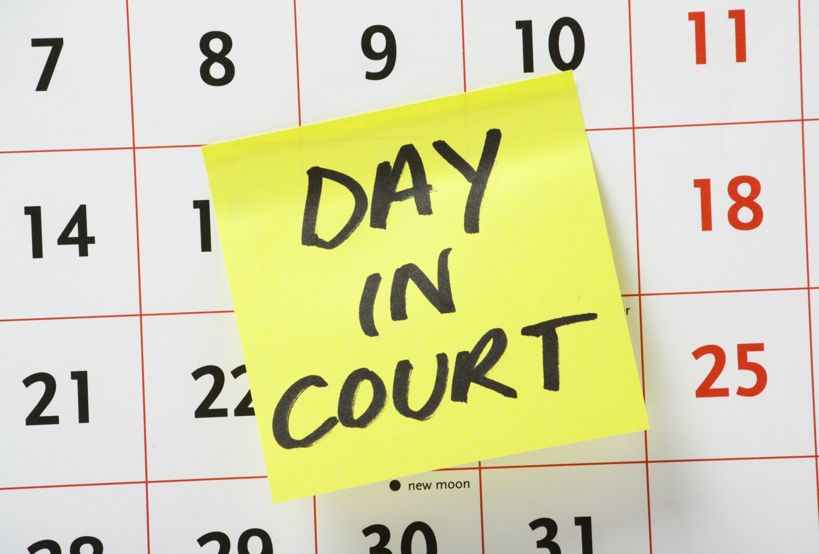
A Court Attendance Notice (CAN) is a serious document. It’s the first step in a legal process that begins when you are charged with a criminal offence. Understanding what this notice entails and how to respond is critical.
This article explains what a Court Attendance Notice is, what it includes, and what steps you should take next.
What Is a Court Attendance Notice (CAN)?
A Court Attendance Notice (CAN) is an official document issued by the court or the police. It informs you of the criminal charges being brought against you and the requirement to appear in court. This document contains several crucial pieces of information, such as:
- The offence with which you are charged, including serious matters like Assault or Driving Offences.
- A brief description of the alleged incident.
- The date, time, and location of the court where you must attend.
Ignoring this court notice or failing to appear in court could result in severe legal consequences, including fines or even an arrest warrant.
Types of Court Attendance Notices
When you are issued a Court Attendance Notice (CAN), it will generally fall into one of two categories:
Full Court Attendance Notice
This is the most common form of a CAN and is usually issued on an A4-sized white sheet of paper. It provides comprehensive details about your court appearance, including the charges against you, the date, time, and location of the court, and any other relevant information regarding your case. The full CAN is typically sent to you by post or handed to you in person.
Field Court Attendance Notice
This smaller, yellow notice is typically issued at the scene of an offence, such as during a roadside stop by the police. While it may not contain as much detail as the full CAN, it is equally important. The Field Court Attendance Notice legally requires you to attend court at the specified time and place, just like the full notice.
It’s essential to note that not receiving the full CAN by post does not exempt you from appearing in court. If you have been handed a Field Court Attendance Notice, you are still legally required to attend.
Failure to do so could result in serious legal consequences, such as fines or a warrant for your arrest.
What Happens After Receiving a Court Attendance Notice?
If you have received a Court Attendance Note and are wondering what happens next, the steps are fairly straightforward but important.
- Consult a Lawyer: The first and most important action is to seek legal advice. A professional can help clarify your options and guide you through the next stages.
- Prepare for Court: Understanding the charges against you, gathering any necessary evidence, and preparing your defence are key. Organise any necessary evidence and begin building a defence, especially in complex cases involving charges like Fraud Offences.
Remember, failing to attend court after receiving a Court Attendance Notice can lead to serious consequences such as fines, a criminal conviction in your absence, or an arrest warrant.
Additional Documents You Might Receive
When you receive a Court Attendance Notice, it’s often accompanied by other important legal documents. These documents provide further details about your case and the legal processes involved. Some of the most common documents you might receive include:
- Fact Sheets: This document outlines the prosecutor’s version of events, providing specific details about the case, including the alleged offence and supporting evidence.
- Bail Undertaking: If you’ve been granted bail, this document will detail the conditions of your release. It’s important to comply with these conditions to avoid breaching your bail.
- Seized Property List: If any of your belongings were confiscated during the incident, this document will list those items. It ensures transparency and accountability regarding the handling of your property.
- Forensic Procedures Consent Forms: In cases involving forensic evidence, you might be asked to consent to procedures such as DNA sampling or fingerprinting. This document confirms your consent.
- DUI Certificates: If you were arrested for a drink-driving offence, your breath test results, including blood alcohol concentration (BAC), will be recorded here.
- Domestic Violence Case Documents: In domestic violence cases, these documents may include photographs, victim statements, or an Apprehended Domestic Violence Order (ADVO).
- Notice of Pleading: This form allows you to submit a plea of guilty or not guilty without physically attending court, making the process more convenient.
Understanding these documents is crucial as they play a significant role in the progression of your case.
Your Rights When Receiving a Court Attendance Notice
When you receive a Court Attendance Notice (CAN), you are entitled to several fundamental rights to ensure fairness and proper legal procedure.
1. Right to Remain Silent: You are not obligated to provide any statements or answer questions that could incriminate you. It’s important to remember that anything you say can be used as evidence in court, so it’s often wise to seek legal advice before making any statements.
2. Right to Legal Representation: You have the right to have a lawyer represent you in court. Legal representation ensures that you understand the charges, the legal process, and your options. A lawyer can also speak on your behalf and provide expert advice on how best to defend your case.
3. Right to Request an Interpreter: If English is not your first language or you have difficulty understanding legal terms, you are entitled to request an interpreter. This ensures that you fully comprehend the charges against you and can effectively participate in the legal process.
What Happens After a Mention in Court?
A mention is the first court hearing after receiving a Court Attendance Notice. It is not a full trial, but a session to determine the next steps in your case. Here’s what typically happens:
- The prosecutor presents the charges: The court will hear the charges against you.
- Request for more time: You or your lawyer may ask the court for additional time to prepare your case.
- Adjournment: The judge may adjourn the case to a later date, allowing time for further preparation.
- Plea options: If you plead guilty, the magistrate may decide on your penalty during this session. If you plead not guilty, the court will set a date for a trial or further hearings.
The mention helps streamline the legal process and ensures all parties are prepared for the next stage.
Alternatives to Court Attendance
In some cases, there are alternatives to attending court that can help resolve your matter more effectively. These alternatives may allow you to avoid a court appearance altogether or reduce the severity of the legal proceedings against you.
Diversionary Programs
For certain offences, such as minor traffic violations, you may be eligible for a diversionary program. These programs, such as traffic offender programs, are designed to educate and rehabilitate offenders rather than penalise them.
Successfully completing such a program can lead to reduced charges or even dismissal of the case, saving you from having to attend court.
Mediation
For specific types of offences, particularly minor disputes or issues involving family law, mediation can be a suitable alternative to court. Mediation allows both parties to meet with a neutral third party to resolve the matter amicably.
It’s a less formal process that can lead to quicker and more mutually beneficial resolutions without the need for court involvement.
What to Do if You Receive a Notice of Pleading
Receiving a Notice of Pleading alongside your Court Attendance Notice allows you to respond without physically appearing in court, but this is typically for less serious charges. Here’s how it works:
- Guilty Plea: If you plead guilty via the notice, the court will decide your penalty without you attending.
- Not Guilty Plea: If you plead not guilty, the court may still require you to attend in the future for a hearing or trial.
It is advisable to consult with a lawyer before using this form, as there are risks involved. You won’t have the chance to dispute any new information the prosecutor presents during the case, which could negatively impact the outcome. Legal advice can help you decide whether this option is in your best interest.
The Importance of Legal Advice
Navigating the legal system can be overwhelming, especially after receiving a Court Attendance Notice. Consulting a lawyer is essential. They can explain the charges, help you understand your rights, and formulate a strong defence strategy. Legal experts will also represent you in court, ensuring the best possible outcome.
At KPT Legal, our experienced team of solicitors provides reliable and professional guidance for individuals facing criminal charges. We work with you to develop a personalised legal strategy and ensure you are fully prepared for every step of the legal process.
What Happens if You Miss Your Court Date?
Missing your court date after receiving a Court Attendance Notice NSW is considered a serious offence. If you fail to attend court, several consequences could occur:
- The court could impose a fine: You may be fined for not appearing, even if you have valid reasons for your absence.
- The court may issue a conviction in your absence: The magistrate can proceed with the case without you, which might result in a conviction.
- A warrant could be issued for your arrest: If the court sees your absence as wilful, a warrant may be issued, leading to further legal complications.
To avoid these severe outcomes, it’s essential to take your Court Attendance Notice seriously. If you cannot attend due to an emergency, it’s crucial to contact the court or your lawyer immediately to inform them and arrange an alternative date if necessary.
Preparing for Your Court Hearing
Once you have received a Court Attendance Notice, preparing for your court appearance is essential to ensure the best possible outcome. Here are some key steps you should follow:
- Consult a Lawyer: Seeking legal advice is the most crucial step. A lawyer will explain the charges, guide you through the legal process, and help develop a defence strategy. They will also represent you in court, ensuring that your rights are protected.
- Organise Documents: Gather all relevant documents that may support your case. This could include witness statements, photographs, medical reports, receipts, or any other evidence that may strengthen your defence. Make sure these documents are well-organised and easily accessible on the day of the hearing.
- Prepare Your Statement: If you need to speak in court, it’s vital to rehearse what you plan to say. Stick to the facts and avoid unnecessary details. Practising your statement can help calm nerves and ensure you present your case clearly and confidently.
- Arrive Early: On the day of your court hearing, arrive at least 30 minutes early. This will give you time to settle in, locate the correct courtroom, and speak with your lawyer. Being punctual demonstrates respect for the court and reduces any added stress.
- Dress Appropriately: First impressions matter. Dress smartly to convey professionalism and respect for the legal process.
By following these steps, you will be better prepared to navigate the court proceedings confidently.
Facing a Court Attendance Notice
Receiving a Court Attendance Notice can feel overwhelming, but understanding the process and knowing what to expect can significantly reduce the stress involved. By taking immediate action and seeking legal advice, you can navigate the situation effectively and protect your rights.
If you’ve received a Court Attendance Notice, don’t delay in seeking professional legal advice. Contact KPT Legal today to discuss how we can help you understand your case and prepare for the next steps, ensuring the best possible outcome.















